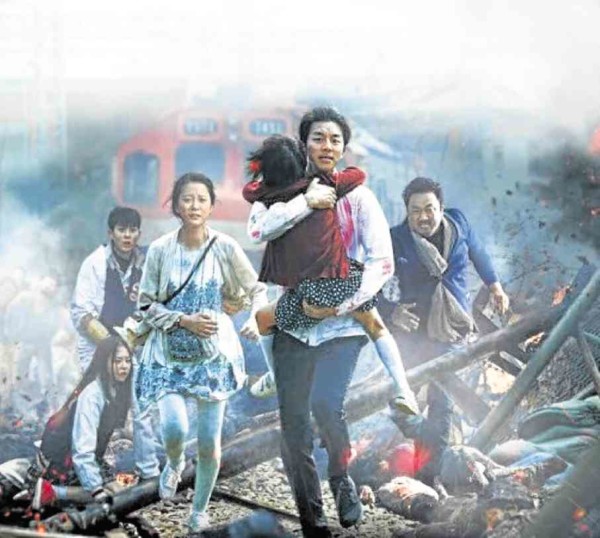Run for dear life
Not being a zombie film fan, I felt flummoxed when I realized that the South Korean movie I was watching at my favorite neighborhood cineplex, “Train to Busan,” was peopled by—the dreaded, living dead! It was too late to run to the exit for dear life, so I just grinned and bore it.
It turned out that, for all of its shrieking, gnashing and slurping, I was also bored by the flick, because it was all apocalyptic agitation and precious little story and empathetic characterization.
There were attempts to give some key victim-victimizers back stories so we could care about them, but those efforts were generally stereotypical and “caption-y,” so they soon ceased to intrigue and involve.
What was left was a really tall tale that was also long in the tooth, about an ill-advised scientific experiment gone woefully wrong. It produced a plague that swiftly turned heretofore decent citizens into ravenous, murderous zombies!
Their numbers quickly multiplied and exponentially increased to put the entire nation, save for some successfully defended pockets of civilization, at lethal risk.
Article continues after this advertisementThe movie’s key characters include a little girl who had an ineptly undemonstrative dad, who later ironically turned out to be involved in the plague’s origins.
Article continues after this advertisementConstant threat
The constant threat of “death by zombies” forced the cold pater to lovingly protect his depressed daughter for the first (and last) time, so the ordeal ended well for their relationship.
Ditto for a pair of “unconnected” teen students who were forced to similarly care for each other while trying to survive all those dementedly gnashing teeth!
Insufficient originality
It’s just too bad that most of the movie’s transformations are achieved with insufficient originality and conviction, so the “lessons” taught fall short of effective empathy.
There’s no doubt, however, that “Train to Busan” is an upbeat cinematic experience for its makers, and for Korean films in general. It had its premiere at this year’s Cannes film fest and generally got encouraging notices, which underscored its “genre-savvy” international acceptability.
Indeed, it’s the first Korean film to have been viewed by 10 million people, and its global gross has profitably moved up close to the $100-million mark that spells “hit” in the international film trade!
